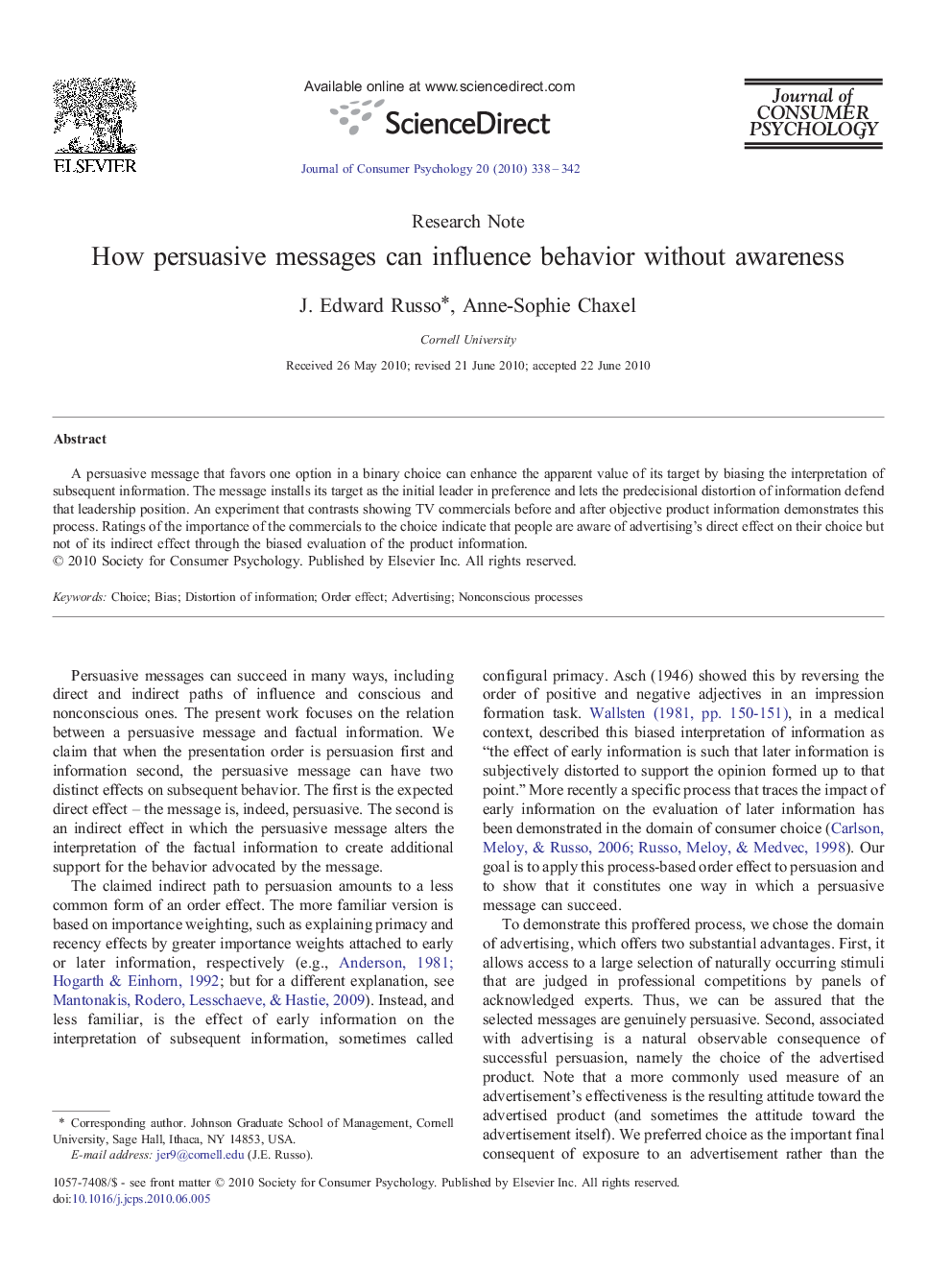| Article ID | Journal | Published Year | Pages | File Type |
|---|---|---|---|---|
| 882375 | Journal of Consumer Psychology | 2010 | 5 Pages |
Abstract
A persuasive message that favors one option in a binary choice can enhance the apparent value of its target by biasing the interpretation of subsequent information. The message installs its target as the initial leader in preference and lets the predecisional distortion of information defend that leadership position. An experiment that contrasts showing TV commercials before and after objective product information demonstrates this process. Ratings of the importance of the commercials to the choice indicate that people are aware of advertising's direct effect on their choice but not of its indirect effect through the biased evaluation of the product information.
Keywords
Related Topics
Social Sciences and Humanities
Business, Management and Accounting
Marketing
Authors
J. Edward Russo, Anne-Sophie Chaxel,
